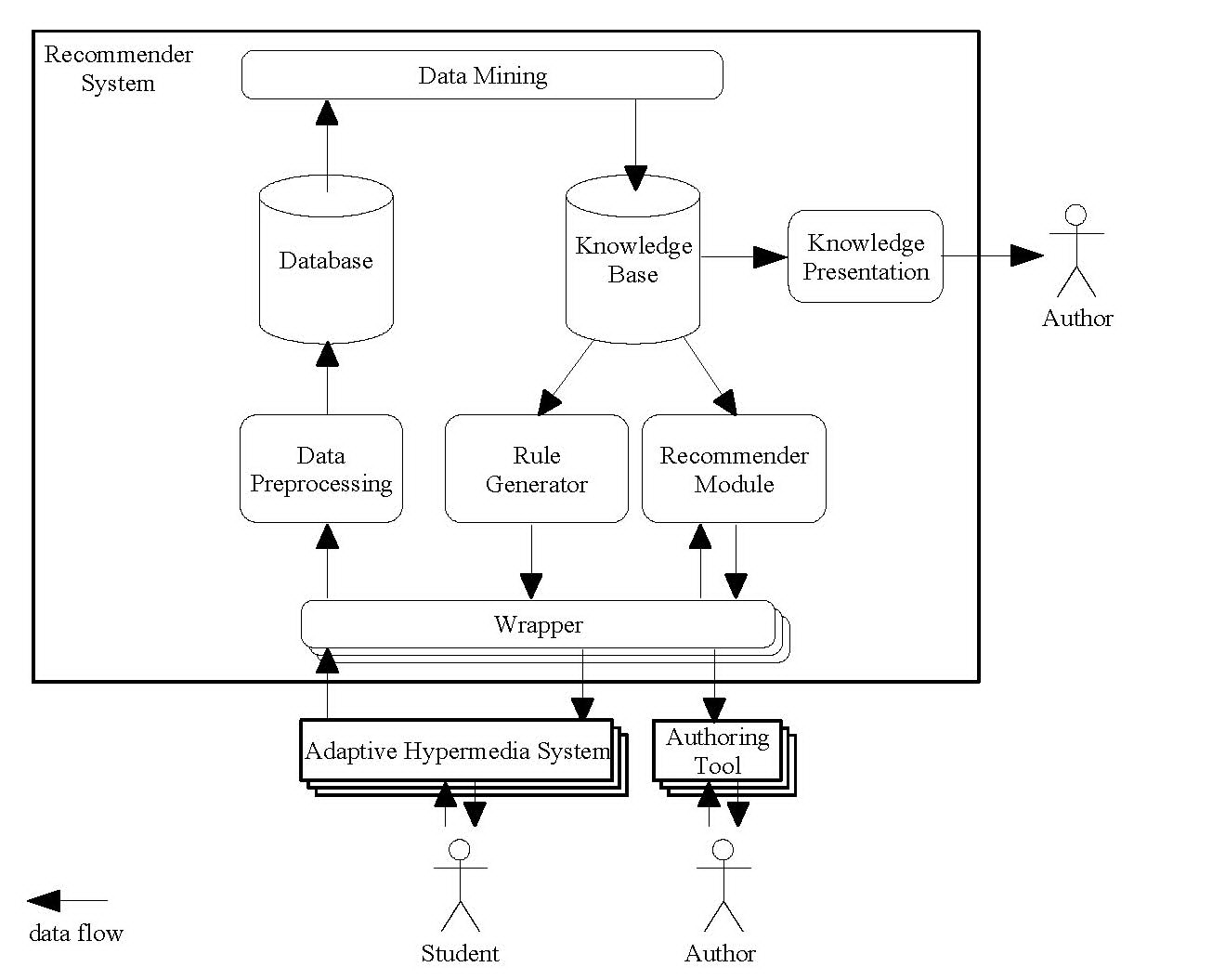|
Discovery of knowledge about student's behavior during the process of learning programmming Andrej Krištofič Master thesis project supervised by prof. Mária Bieliková |
Motivation
Adaptive hypermedia systems, i.e. those which adapt presentation of content and navigation for inidividual users, usually use predefined set of rules for adaptation. However, it may be difficult to capture different aspects of user behaviour in advance in order to prepare such adaptation rules. Our goal is to employ data mining techniques to discover knowledge about behaviour of students in educational adaptive hypermedia system. This knowledge is later used to enhance adaptiveness of system by recommending next lessons/topics to student.
Results
We analyzed available data usually provided by educational adaptive hypermedia systems. One of the most valuable sources for knowledge discovery is usage data - logs of user actions in system. We chose three data mining techniques to discover patterns in such data: association rules, sequential patterns and traversal patterns. These patterns are used to capture knowledge about behaviour of students. An example of such pattern can be: "60% of all students who visited Lesson A and Lesson B (in this order) proceeded to Lesson C"
Discovered knowledge is stored in so called Knowledge Base and it is used for online recommendations of lessons student should visit next. By combining recommendations based on all three types of patterns (association rules, sequential and traversal patterns) we were able to improve precision of recommendation.
Another outcome of this work is proposal of architecture of recommender system (see figure below) which blends knowledge discovery and recommendation. The architecture is independent of actual adaptive hypermedia system used. In fact, the recommender system can provide recommendations for multiple adaptive hypermedia systems.
Conclusion
Current approaches for personalization of navigation work only with single type if usage patterns. Approach explained in the thesis takes advantage of multiple usage pattern types, taking different suitability of usage pattern types for navigation recommendation into account.
The proposed recommender system and recommendation algorithms can be further enhanced. It might be worthwhile to incorporate information about grades of students into mining process in order to identify patterns of successful students only. Also, since the recommender system can serve several educative adaptive systems, it would be interesting to find out whether knowledge discovered in different systems could be shared.
Publications
- Krištofič, A.
- Discovery of knowledge about student's behavior during the process of learning programmming. Master thesis, Slovak University of Technology in Bratislava, 2005.
 pdf (in Slovak)
pdf (in Slovak)
- Krištofič, A., Bieliková, M.
- Improving adaptation in web-based educational hypermedia by means of knowledge discovery. In Proc. the 16th ACM Conference on Hypertext and Hypermedia, pages 184-192, ACM Press, 2005.
- Krištofič, A.
- Recommender System for Adaptive Hypermedia Applications. In Proc. of the IIT.SRC - Student Research Conference in Informatics and Information Technologies (M. Bieliková, ed.), pages 229-234. Vydavateľstvo STU, Bratislava, 2005.
| to Homepage | to Teaching | to the Top |
|
||
|
||
